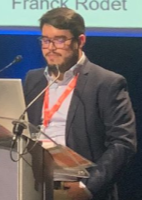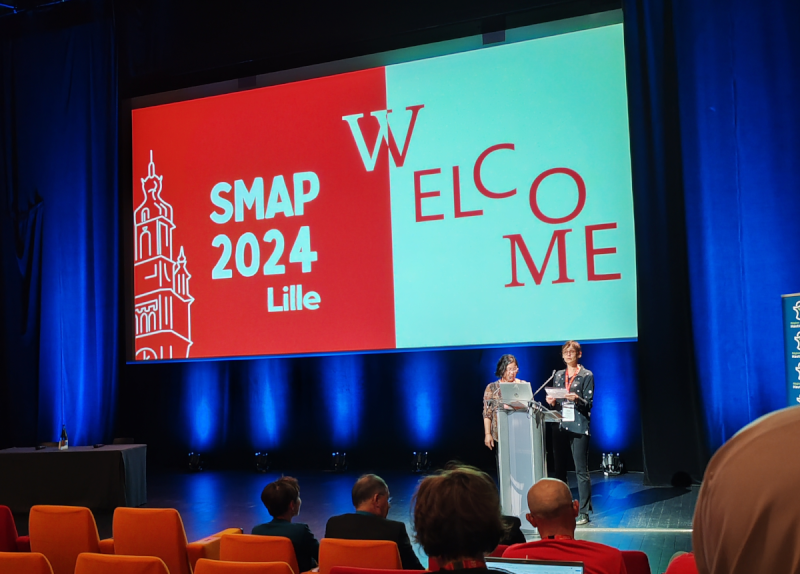
Diego Fernando Garcia-del Rio, PhD
PostDoctoral Researcher Center for Structural Mass Spectrometry
Institute of Pharmacy
Martin Luther University Halle-Wittenberg
One of the main advantages of being a researcher is the opportunity to share and gain knowledge at conferences. It's crucial for researchers to stay up-to-date on the latest technological and methodological aspects of their field. The recent conference on Mass Spectrometry and Proteomic Analysis (SMAP) in Lille from September 16 to 19 provided a fruitful opportunity to do just that.
SMAP 2024 showcased the latest advancements in proteomics and mass spectrometry, two techniques that have evolved rapidly over the past two decades. By bringing together the French Proteomics Society and the French Mass Spectrometry Society in one venue, young researchers like myself could see firsthand how technological advances in mass spectrometry (MS) directly impact protein research. Today, it's possible to identify thousands of proteins from a single cell in mere minutes.
Another fascinating research approach shared at the conference was the methodological advances in metaproteomics. This analytical technique involves large-scale characterization of the entire microbiome proteome in samples or ecosystems. Its aim is to provide insights into microbial interactions, metabolic activities, and adaptations to environmental conditions.
Keynote speaker Céline HENRY described how applying MS to metaproteomics has broadened our understanding of microbial communities. With MS advancements, researchers can now identify and quantify proteins in complex samples with unprecedented depth. This process involves carefully integrating MS and Next Generation Sequencing datasets, ultimately allowing deep insights into microbial community composition, protein functions, and metabolic activities within these complex ecosystems.
My main takeaway from her presentation was that this research field still faces significant challenges across various aspects of the process. These include preparing samples from complex matrices, acquiring high-quality spectra from complex samples (addressed through efficient acquisition methods like ion mobility and Data-Independent Acquisition using modern mass spectrometers), retrieving NGS data to create microbe-specific protein databases, and the daunting task of bioinformatic processing. The latter involves navigating and analyzing enormous databases, requiring advanced computational algorithms and powerful data processing and storing capabilities.
The conference also highlighted significant practical applications across various fields. A notable example is the evaluation of contaminants' effects on aquatic ecosystems. Moreover, metaproteomics has important implications for human health research, especially in studying conditions like inflammatory bowel disease and obesity. This approach offers valuable insights into the complex interactions between the human host and their microbiome.
Finally, I would like to conclude this letter by thanking the FPS for providing me support to return to Lille, the city where I lived and completed my PhD. I'm especially grateful to them for organizing, along with the French Mass Spectrometry Society, this amazing congress full of high-quality science, speakers and a lot of fun in a beautiful city as it is Lille.
 |

